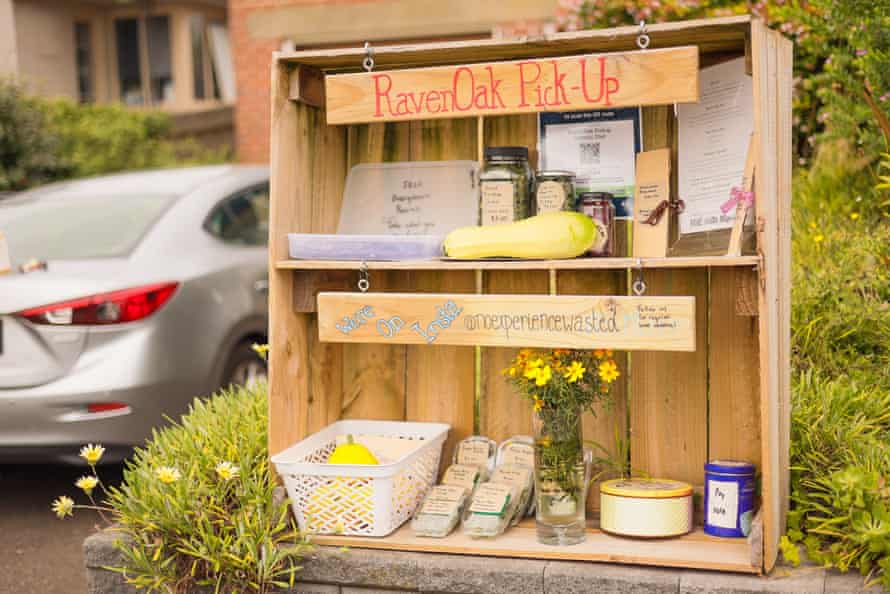Shared from www.theguardian.com
When Hannah Reeve tore up the grass on her suburban block in Burnie, Tasmania to make more room for growing vegetables, she faced the problem of what to do with the surplus.
Her solution was to create the RavenOak pickup honesty stall out the front of her house, a set of salvaged wooden shelves laden with an ever-changing array of squash, zucchini, spring onions, eggs, beans, cucumber, rainbow chard, warrigal greens, spinach and broccoli.
Passersby can pick up the produce for the cost of a few coins, and a few items such as seeds are marked as free.
It was four months before Reeve made her first sale, but now that people have gotten used to the idea, business is booming and neighbours are responding in kind, she says.
“We’ve had people drop off big bags of lemons, or plums or boxes of rosemary, just free for people to take,” she says.
Roadside honesty stalls have always been a feature of Australian country life.
But since the pandemic started, more and more are popping up in urban areas as backyard growers who honed their green thumbs during the first lockdown help calm food security fears caused by the latest round of bare supermarket shelves.
While there are no hard figures available on the growth of honesty stalls, Grow Free founder Andrew Barker has noted surging interest in “sharing carts”, which allow people to pick up (or leave) homegrown produce and seedlings for free.
When Grow Free started 10 years ago, there were only one or two new carts a year. “Now there’s a new cart at least every week … and there’s 320 sharing carts across the country,” he says.
Koren Helbig, who launched The Local Yum in Adelaide in September 2020, says she was keen to challenge the notion that city dwellers couldn’t be trusted with the dual temptations of fresh produce and an unattended cashbox. So far, she’s found that people who take her vegetables, seeds, olives, chutney and jam are mostly honest.
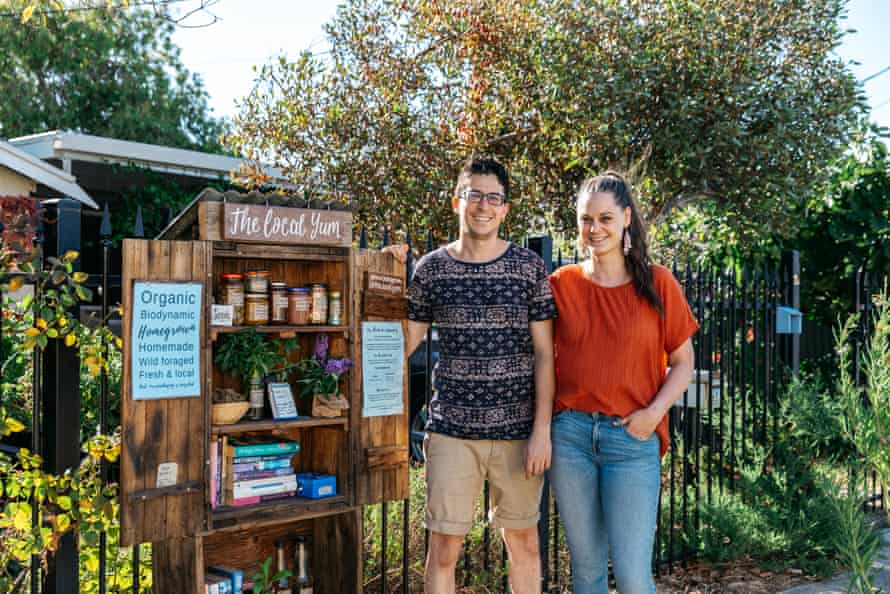
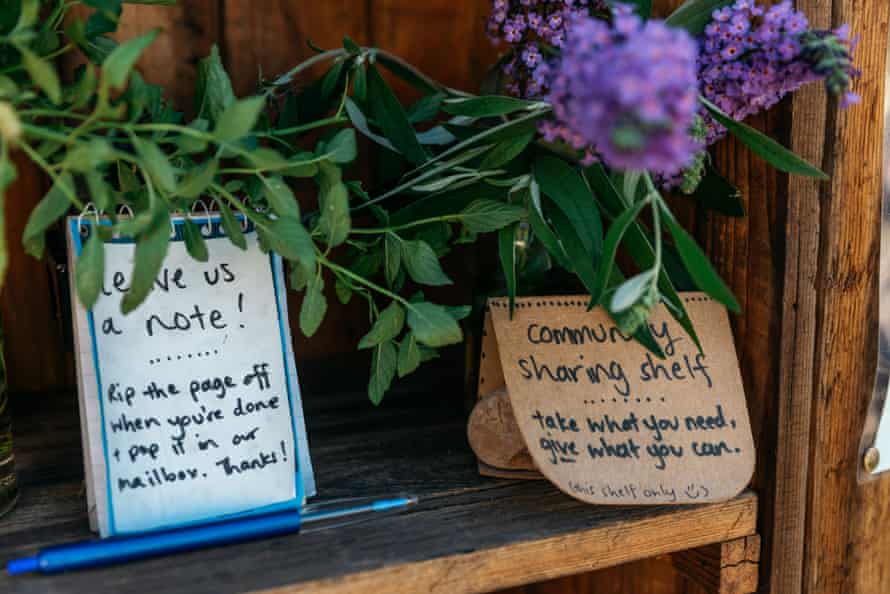
“Theft is the number one concern of people who are considering creating one of these stalls,” says Helbig, who regularly fields enquiries about how she does it. The questions came up so frequently, she wound up writing a guide for would-be sellers.
“We’ve had our stall for 18 months now and in that time we’ve only had a handful of instances of theft or vandalism,” she says.
Reeve’s experience is similar. She says she’s only had one instance where someone “wiped out” the contents of her stall.
“They took the whole lot – two dozen eggs, some preserves, zucchini,” she says.
“That one was hard … but there’s always going to be someone, and who am I to say that they weren’t in need? So instead of reacting, we put a little addition on our sign that said, ‘Free if you can’t afford to pay’,” she says.
Rachel Fordyce, who sells home-propagated plants through the Kenmar honesty stall in Brisbane’s Wynnum West, is similarly philosophical about what supermarkets call “shrinkage”.
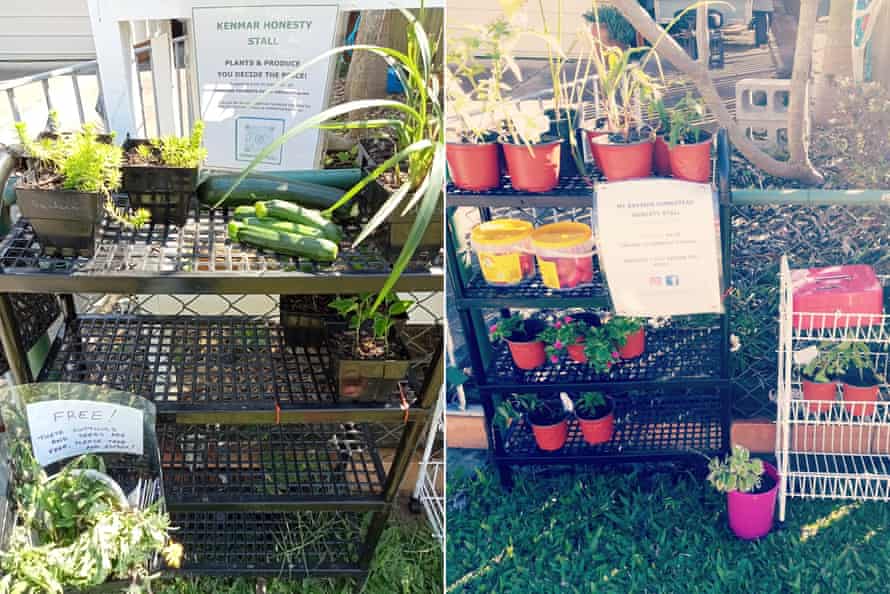
She discourages theft by zip-tying her money tin to the stall shelves, but otherwise doesn’t worry.
“There’s probably been a couple of plants gone walkabout, or maybe somebody’s put 20 cents in instead of $1, but that doesn’t really bother me, I figure that’s part and parcel of doing it this way,” she says.
Another concern for would-be stallholders is falling foul of local government regulations, which differ depending on where stalls are based.
Brisbane City Council, for instance, points out that permits are required to operate a commercial activity on council-owned land; that building approval is required if stalls on private property exceed certain dimensions; and that a food licence is required if fruit or vegetables are cut or peeled.
But a spokesperson noted that council had not received any complaints or reports about honesty stalls – and none of the stallholders I spoke to had attracted any attention from authorities.
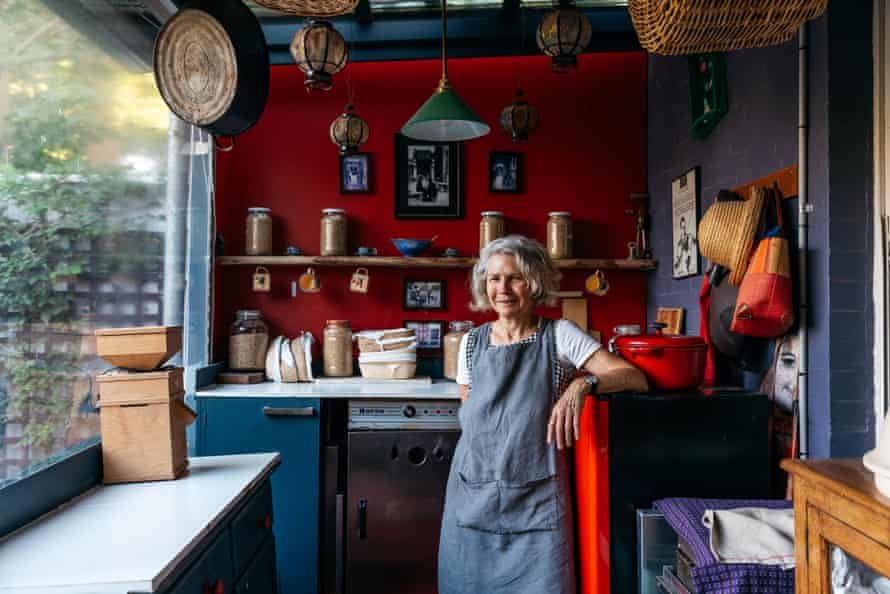
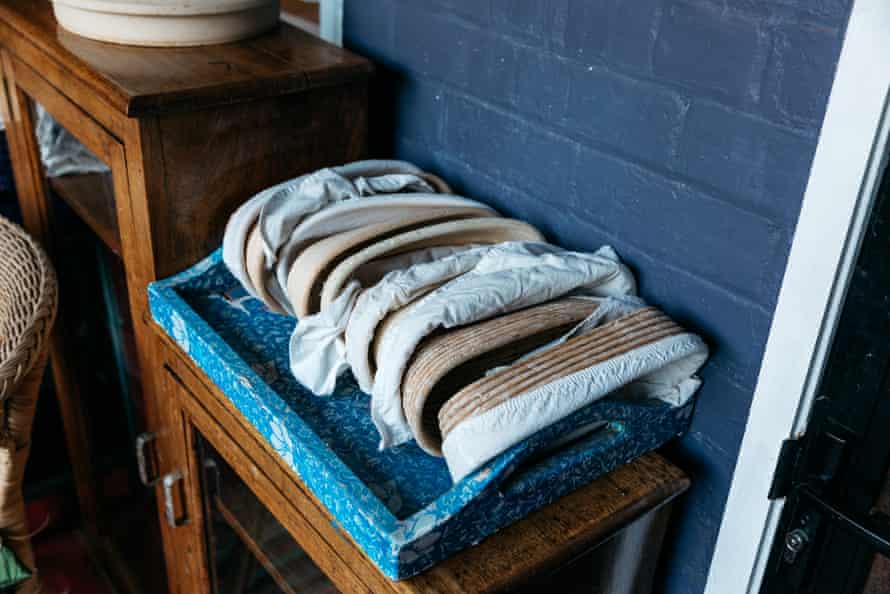
Adelaide’s Jane Copeland, who sells sourdough from a stall, at a location she requested remain undisclosed for privacy reasons, says that when it comes to the legalities involved, ignorance is bliss.
“I don’t want to know,” she says. “I don’t even know who would shut it down.”
She started the venture in August 2020, after taking early retirement. She mills her own flour, bakes 18 loaves and 10 baguettes four days a week and pops them in a tiny stall hanging from her front fence.
Everything sells within an hour of being placed there.
“People want to reclaim something that’s simple and honest, good, beautiful and pure,” she explains. “[Bread] is just flour, salt and water.”
But the most compelling benefit she’s seen is the strengthening of social bonds.
“I’ve met a billion people who live nearby, who I never knew before,” Copeland says. “They all meet each other and bring their dogs and talk to each other and it’s really the most amazing thing.”
Images and Article from www.theguardian.com

